- Home
- slideshows
- miscellaneous
- The 57 nations in the world that aren't 'free,' according to an international watchdog
The 57 nations in the world that aren't 'free,' according to an international watchdog
Afghanistan

Algeria

The ruling National Liberation Front controls Algeria's politics in controlled elections and repressed protests, legal restrictions on the media, and rampant corruption across politics and the military.
Aggregate Freedom Score: 34/100
Angola

Political authorities in Angola repress political dissent as corruption, due process violations, and abuses run rampant. Though the country's rating has improved since the 2017 election due to some checks on corruption and loosened controls on the media and citizens, but abuses in government institutions and society remain.
Aggregate Freedom Score: 31/100
Azerbaijan

Azerbaijan's authoritarian and corruption-riddled government has largely kept power with Ilham Aliyev, the country's president since 2003 under which officials have fostered growing repression of civil liberties and political opposition.
Aggregate Freedom Score: 11/100
Bahrain

Bahrain's monarchy first crushed a popular democracy movement in 2011, and has since cut back political rights and civil liberties across the country, and cracked down on political opposition efforts.
Aggregate Freedom Score: 12/100
Belarus

Citizens of Belarus live under relatively firm control by the government, which quashes most political dissent and conducts controlled elections.
The country has suffered damage from war in nearby Ukraine, growing regional tensions, and hurting a struggling economy, which has sparked efforts to improve relations with the United States and European Union to mitigate such damage.
Aggregate Freedom Score: 19/100
Brunei
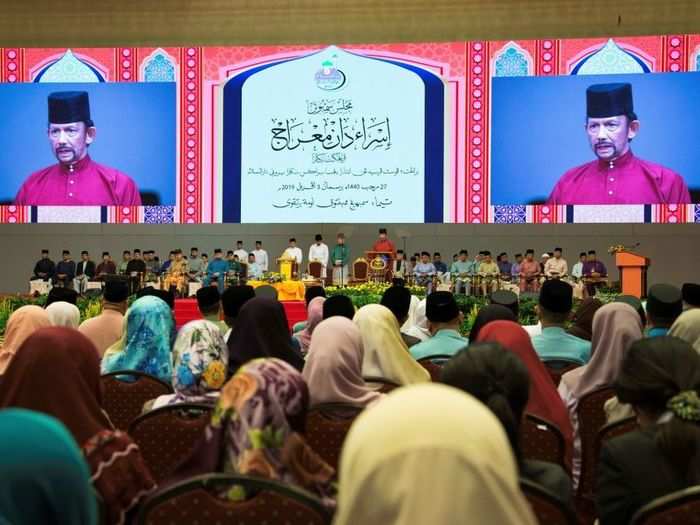
Brunei is an absolute monarchy system whose sultan maintains executive power with no elected officials, allowing for sharp restrictions on freedom of the press and assembly.
Aggregate Freedom Score: 29/100
Burundi

Authoritarian politics have thrived in the country since the 12-year civil war ended in 2005 because of repression and prosecution of political opposition efforts.
Aggregate Freedom Score: 14/100
Cambodia

Prime Minister Hun Sen and the Cambodian People's Party have held control of the country for more than 30 years. Polls held in 2018 were deemed meaningless because of the "severely repressive environment that offered voters no meaningful choice," in which the CPP won every seat in the government's lower and upper house.
Aggregate Freedom Score: 26/100
Cameroon

Cameroon's President Paul Biya has been in office since 1982, maintaining power through rigged elections and suppressed opposition efforts.
Violence is rampant as Boko Haram wages attacks on civilians in northern Cameroon, and security forces responding to the insurgency have been accused of committing human rights violations against civilians.
Aggregate Freedom Score: 19/100
Chad

None of Chad's elections since 1996 have changed the country's ruling powers as state forces quash anti-government protests and any opposition figures face the threat of imprisonment and death, according to last year's report entry.
Aggregate Freedom Score: 17/100
China

The ruling Chinese Communist Party has grown more restrictive with state agencies, the internet, religious groups, universities, and businesses. The CCP leader and state president, Xi Jinping, has consolidated personal power to a degree not seen in China for decades, but his actions have also triggered rising discontent among elites within and outside the party. The country's budding human rights movements continue to seek avenues for protecting basic rights despite a multiyear crackdown.
Aggregate Freedom Score: 11/100
Democratic Republic of the Congo (Kinshasa)
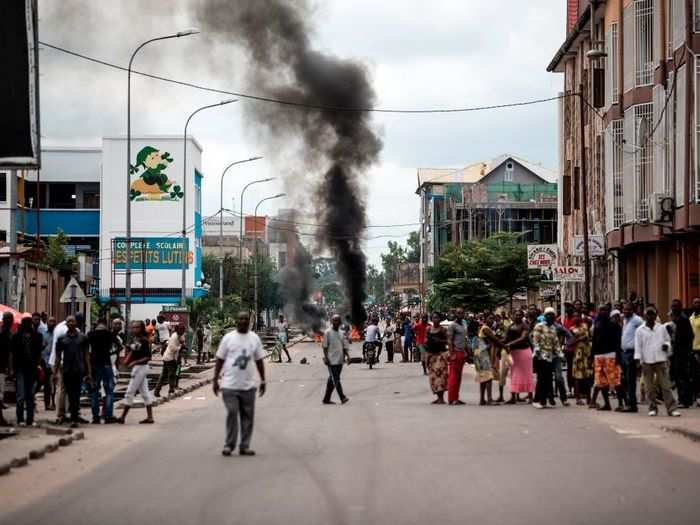
After years of election delays, votes held in December 2018 were marred by fires destroying thousands of voting machines and shortcomings in federal funding for the votes.
Rampant corruption in the government has created harsh restrictions on citizens' basic civil liberties and widespread opportunity for officials to exercise human rights abuses in addition to violence carried out by militias across the country.
Aggregate Freedom Score: 15/100
Republic of the Congo (Brazzaville)
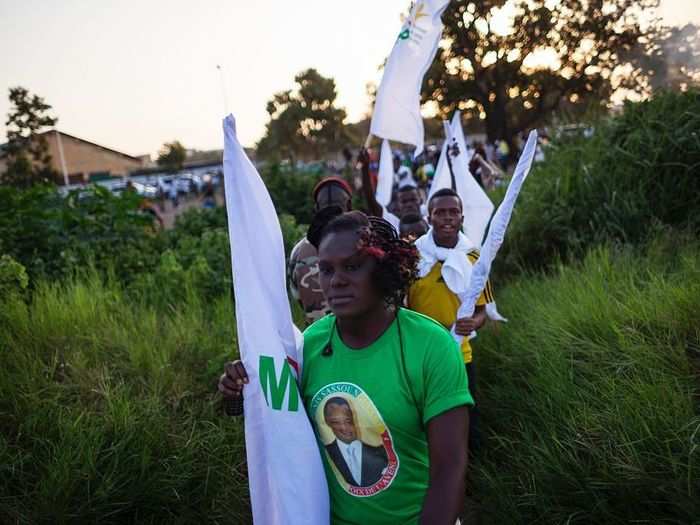
The Congo's government is almost wholly disconnected from functions of democracy, as current President Denis Sassou Nguesso has held office for more than three decades by quashing any possible threat of opposition.
Rampant corruption has crippled the Congo's economy and created a harsh environment for citizens' rights where human rights organizations and the media are very restricted in their abilities to reach the population.
Aggregate Freedom Score: 21/100
Crimea

In early 2014, Russian forces invaded the autonomous Ukrainian region of Crimea and quickly annexed it to the Russian Federation through a referendum that was widely condemned for violating international law. The occupation government severely limits political and civil rights, has silenced independent media, and employs antiterrorism and other laws against political dissidents. Many Ukrainians have been deported from or otherwise compelled to leave Crimea. Members of the indigenous Crimean Tatar minority, many of whom vocally oppose the Russian occupation, have faced particularly acute repression by the authorities.
Aggregate Freedom Score: 8/100
Cuba

Under Cuba's one-party communist rule, dissent is stifled and citizens lack basic civil liberties, even in the midst of new leadership as of last year that many doubted would significantly change the country.
Aggregate Freedom Score: 14/100
Djibouti
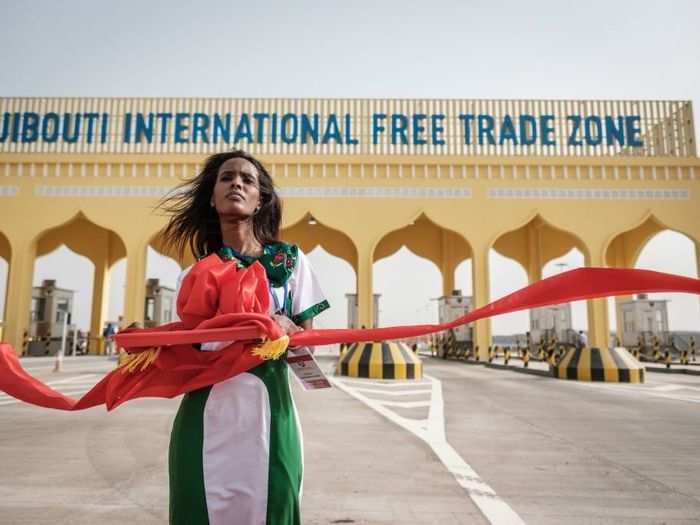
Egypt

After taking power in a 2013 coup, Abdel Fattah al-Sisi's authoritarian rule has quashed political opposition, prosecuting and imprisoning activists.
Citizens also live under the fear of terrorism on the Sinai Peninsula and in the country's mainland.
Aggregate Freedom Score: 22/100
Equatorial Guinea
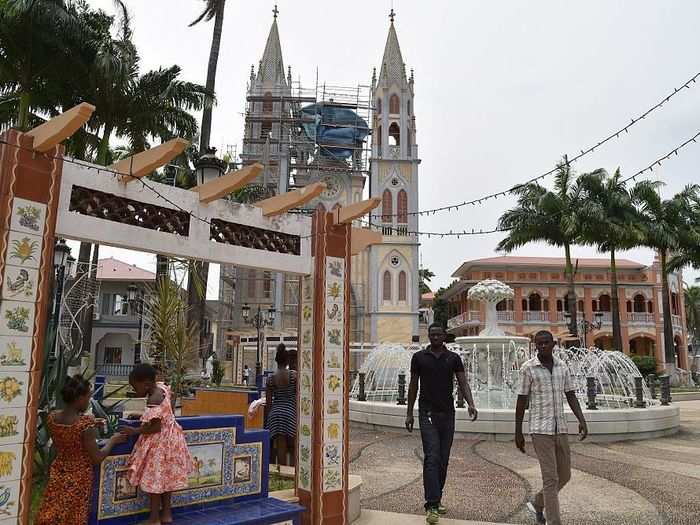
Equatorial Guinea holds ineffective elections that have failed to disrupt the current president, who has held power since a 1979 coup. The general public holds little of the oil wealth and political power in the country and suspected political opponents and activists are often detained.
Aggregate Freedom Score: 6/100
Eritrea
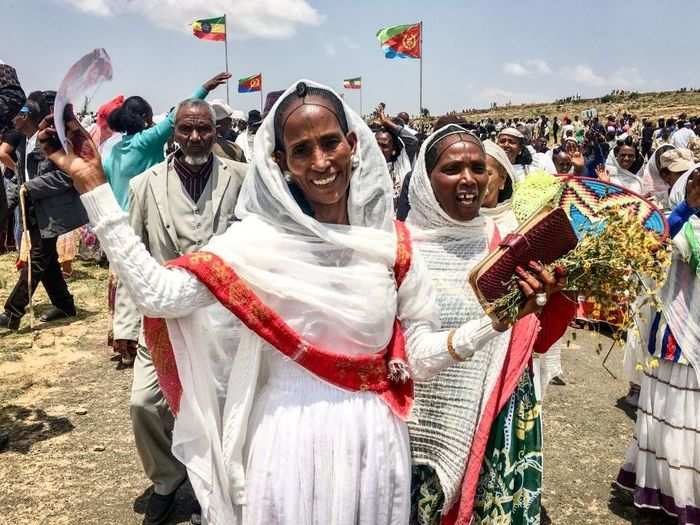
The country is a militarized authoritarian state with no independent media and only one political party that has not held a national election since its 1993 independence from Ethiopia. The report adds that citizens are required to perform national service, in which many spend their entire working lives.
Aggregate Freedom Score: 2/100
Eswatini
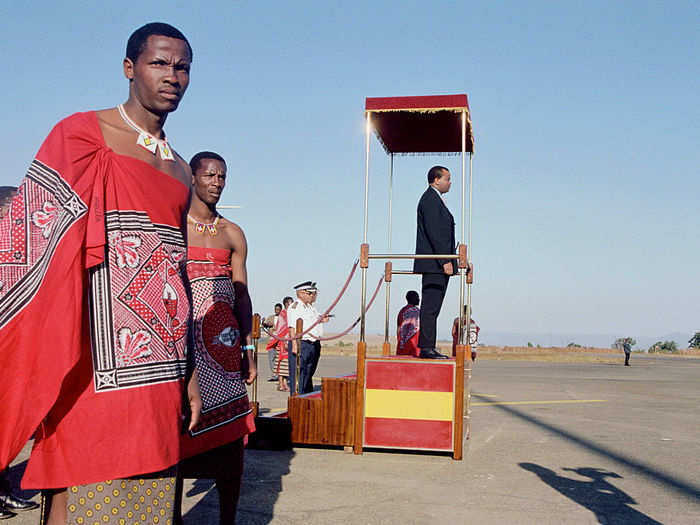
Eswatini's king holds ultimate authority over the country, including national and local governing bodies, through which political dissent and activism are quashed and vulnerable populations including women and LGBTQ residents are targeted for discrimination.
Aggregate Freedom Score: 16/100
Ethiopia

Prime Minister Abiy Ahmed pledged political reform in the authoritarian state upon his 2018 appointment, but internal power struggles among political factions and local violence have continued to plague citizens living under rampant corruption and restricted civil liberties.
Aggregate Freedom Score: 19/100
Gabon
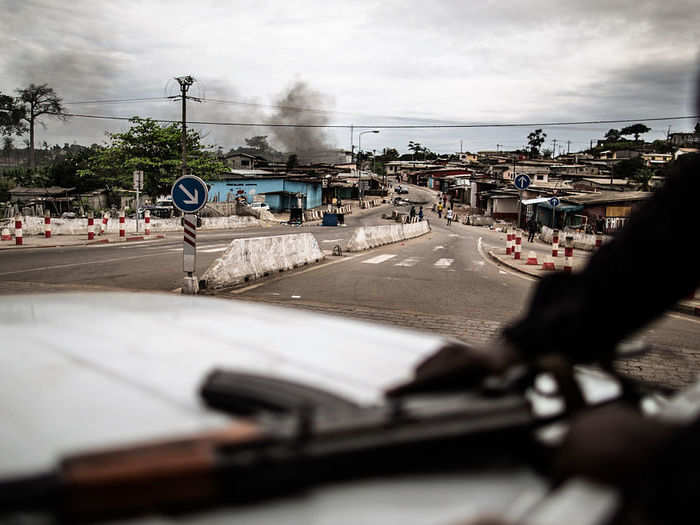
Gabon's current president has resisted the country's elections after succeeding his father in 2009 to assume the head of the executive branch, under which vulnerable groups including immigrants, indigenous people, and women suffer from marginalization and discrimination.
Aggregate Freedom Score: 23/100
Iran

The Islamic Republic of Iran's elections are undermined by the Guardian Council, an unelected body that disqualifies all candidates it deems insufficiently loyal to the clerical establishment. Because of this system, the country's supreme leader, Ayatollah Ali Khamenei, is handed total power to systems that suppress political dissent and most civil liberties.
Aggregate Freedom Score: 18/100
Iraq

Though Iraq holds regular elections that often involve representative groups, the report notes that rampant corruption undermines democracy.
Aggregate Freedom Score: 32/100
Kazakhstan

Kazakhstan has been ruled by President Nursultan Nazarbayev since 1991 due to rampant corruption, state-loyal media, ineffective elections, no challenge from other political parties, and the tendency of the state to quash legitimate opposition.
Aggregate Freedom Score: 22/100
Laos

After a 2014 coup, Thailand is ruled by a unit of military leaders that has suppressed political opposition and exercised "unchecked powers" secured in the constitution that restrict citizens' civil and political rights.
Aggregate Freedom Score: 30/100
Libya

The country's 2018 report entry says the politically fractured state has failed to control the rise of weapons, militias, criminal networks, and extremist groups like the Islamic State, violence from which has displaced hundreds of thousands of people.
Aggregate Freedom Score: 9/100
Mauritania
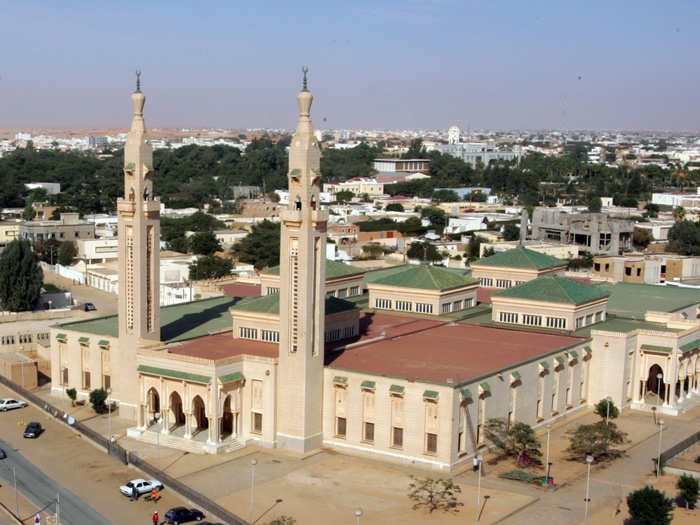
The country's current leadership emerged in 2008 after a military coup and has since held power through "flawed" elections, according to the country's entry in last year's report. The government often takes political prisoners, including antislavery activists and offenders of blasphemy, apostasy, or abandoning of religion, which are punishable by death.
Aggregate Freedom Score: 32/100
Nicaragua

The report points to Sandinista leader Daniel Ortega's 2006 election victory as the beginning of "a period of democratic deterioration" that included rampant corruption, the choking of basic freedoms, and the consolidation of all branches of government under his party's control.
This crackdown culminated in a 2018 clash between state forces who issued a violent response to quell anti-government protests, killing more than 300 people in the process.
Aggregate Freedom Score: 32/100
North Korea

North Korea is controlled by a dynastic totalitarian dictatorship, which maintains its harsh control with extensive surveillance, arrests and brutal punishment for those suspected of political offenses. The report adds that camps for political prisoners often implement "torture, forced labor, starvation, and other atrocities."
Aggregate Freedom Score: 3/100
Oman

Oman's hereditary monarchy has secured power for Sultan Qaboos bin Said al-Said since 1970, a rule under which criticism and dissent are criminalized and residents lack nearly all political rights and civil liberties.
Aggregate Freedom Score: 23/100
Pakistani Kashmir
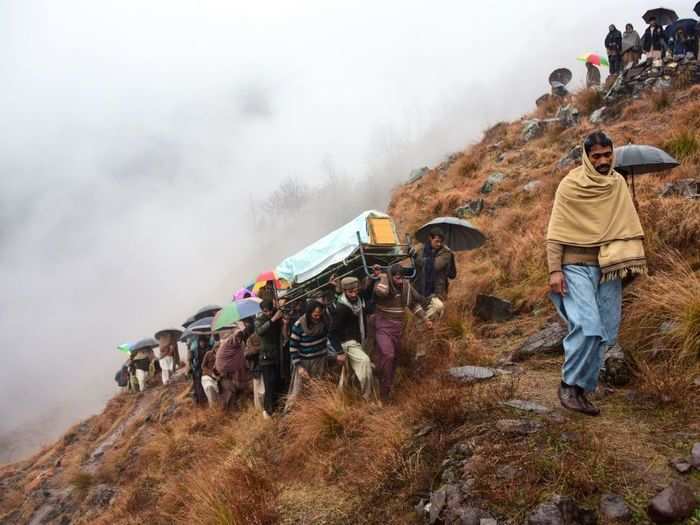
The two territories that populate the region lack the political activity and rights of other Pakistani territories, as they are closely controlled to ensure they eventually lead to Pakistan.
Aggregate Freedom Score: 28/100
Qatar

Qatar's emir inherits the role that holds all executive and legislative authority, as other political parties are not permitted, and elections don't affect the highest levels of government.
The report notes that Qatari citizens are among the wealthiest in the world, but the vast majority of the population are noncitizens with no political rights, few civil liberties, and limited access to economic opportunity.
Aggregate Freedom Score: 25/100
Russia

President Vladimir Putin controls Russia's authoritarian government and leads its security forces, judiciary, and media to manipulate elections and suppress genuine dissent. Rampant corruption facilitates shifting links among bureaucrats and organized crime groups.
Aggregate Freedom Score: 20/100
Rwanda

The Rwandan Patriotic Front has ruled the country since 1994, which has slightly stabilized its economy and society, but quashed political dissent through surveillance, intimidation, and suspected assassinations of critics and opponents.
Aggregate Freedom Score: 23/100
Saudi Arabia

Saudi Arabia's monarchy has avoided elections and quashes almost all political rights and civil liberties enforced by extensive surveillance, criminal punishment for dissent, and formalized discrimination against women and religious minorities.
Aggregate Freedom Score: 7/100
Somalia

Since the collapse of an authoritarian regime in 1991, no national elections have been held and the militant ruling party has been superseded by political activity conducted among clans. Amid this fractured power, human rights abuses run rampant, causing the national government to lose territory as punishment.
Aggregate Freedom Score: 7/100
South Ossetia
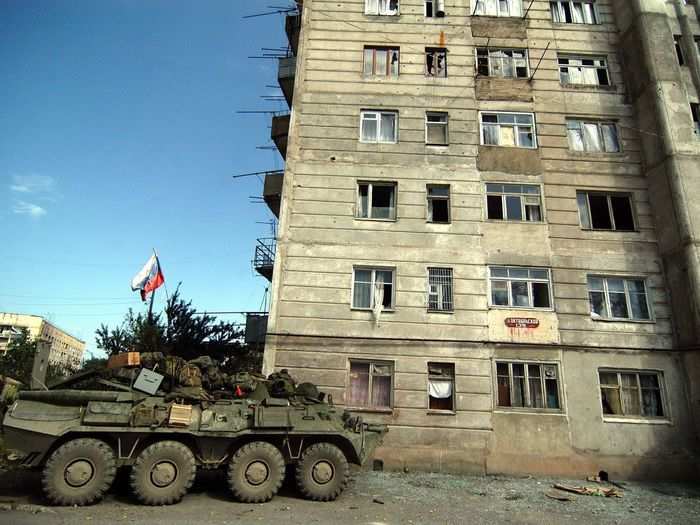
Last year's report entry says the territory, which gained de facto independence from Georgia in 1992, has since largely come under Russia's control as it is dependent on subsidies from the nearby country, which has a heavy hand in the state's politics, media, and residents' civil rights.
Aggregate Freedom Score: 10/100
South Sudan

After gaining independence from Sudan in 2011, the country saw fighting between ethnic groups that descended into civil war in 2013. Amid attacks on civilians, journalists, and aid workers, a 2018 peace agreement further slowed political transformation, delaying national elections and installing a power-sharing arrangement among leaders who have seen corruption and economic collapse.
Aggregate Freedom Score: 2/100
Sudan

Sudan's authoritarian president and his party have repressed the media, political opposition efforts, and regional, religious, and ethnic groups that "do not share its narrow nationalist vision."
Aggregate Freedom Score: 7/100
Syria

Last year's report cited a combination of a repressive regime and ongoing civil war that has crippled political and civil rights in Syria as corruption runs rampant in the government and political opposition is quashed.
Aggregate Freedom Score: 0/100
Tajikistan
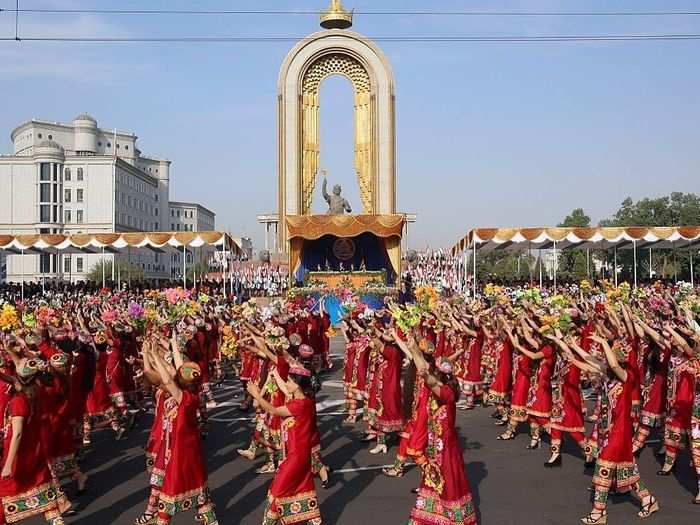
President Emomali Rahmon, who has served in office since 1992, has led the government in repressing political opposition and dissent.
In 2017, the government solidified hostility against religious expression in the country by taking aim at Muslim citizens, passing a law that requires citizens to "stick to national clothes and culture."
Aggregate Freedom Score: 9/100
Thailand

After a military force took control of Thailand in a 2014 coup, its crackdown on civil and political rights and perceived opposition has gone unchecked.
Aggregate Freedom Score: 30/100
Tibet

The Chinese Communist Party's rule in Tibet has given Chinese party officials control to deny people of Tibetan ethnicity their fundamental rights in addition to suppressing religious and cultural expression.
Aggregate Freedom Score: 1/100
Transnistria
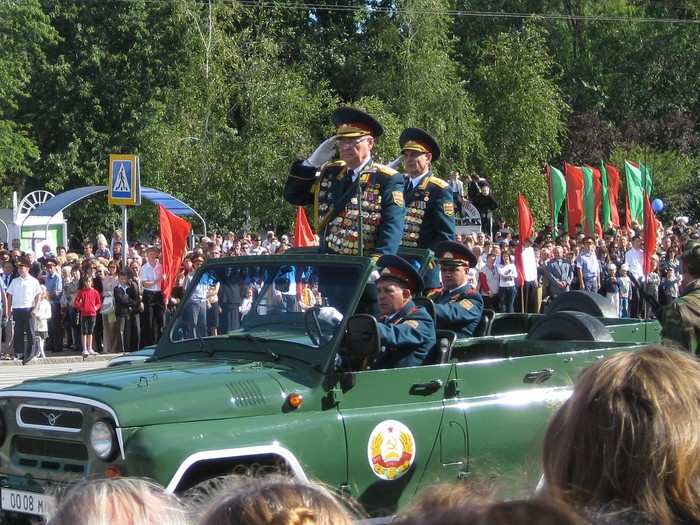
Transnistria is a state mostly composed of ethnic Russians and Ukrainians but is recognized as part of Moldova, which it broke away from in August 1991. Though technically independent, the state has a Russian military presence and is heavily dependent on Russian subsidies.
Aggregate Freedom Score: 24/100
Turkey

President Recep Tayyip Erdoğan's Justice and Development Party has ruled Turkey since 2002, fostering an increasingly hostile environment for political rights and civil liberties that culminated in a crackdown on opposition following a 2016 coup attempt and constitutional changes adopted in 2017 to consolidate power in the president's hands.
Aggregate Freedom Score: 31/100
Turkmenistan
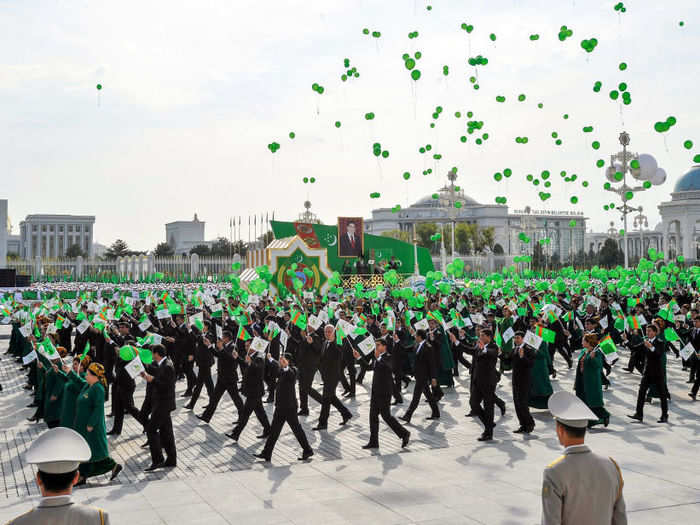
Turkmenistan's authoritarian control represses nearly all political rights and civil liberties, including controlled elections, economic, religious, and other political activities.
Aggregate Freedom Score: 2/100
Uganda

Since 1986, Uganda has been ruled by the same president and party, the National Resistance Movement, which retains power through the manipulation of state resources, intimidation by security forces, and politicized prosecutions of opposition leaders. Uganda's civil society and media sectors remain vibrant, despite suffering sporadic legal and extralegal harassment and state violence.
Aggregate Freedom Score: 36/100
United Arab Emirates
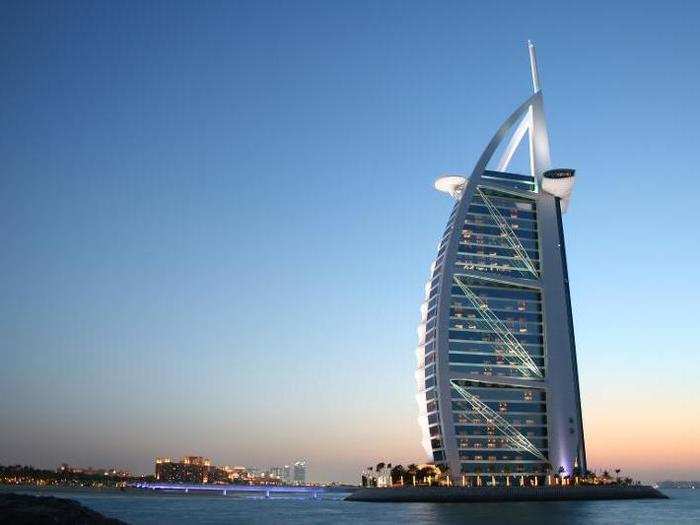
Political parties are banned within the seven emirates and hereditary rulers hold all power, with which they sharply restrict civil liberties of citizens and visitors alike.
Aggregate Freedom Score: 17/100
Uzbekistan

Uzbekistan's authoritarian regime stands unbalanced by the non-existent opposition and branches of government that are rendered useless as they are forced to follow decrees from the executive branch.
Despite some changes that have resulted in the dismissal of security officials, there have been multiple reported instances of torture and high-profile cases of political and religious prisoners under the authoritarian rule.
Aggregate Freedom Score: 9/100
Venezuela

Amid declining humanitarian and financial crises, Venezuelans have faced food and medicine shortages, historically high hyperinflation, and rampant crime.
President Nicolás Maduro's administration has been the country's latest chapter of rampant federal corruption that has seen over 3 million Venezuelans flee the country and its crippled systems.
Aggregate Freedom Score: 19/100
Vietnam

The Communist Party's control over Vietnam has created a dangerous environment for human rights, as citizens and activists alike face restricted freedoms in speech, press, work, and religion.
Aggregate Freedom Score: 20/100
West Bank
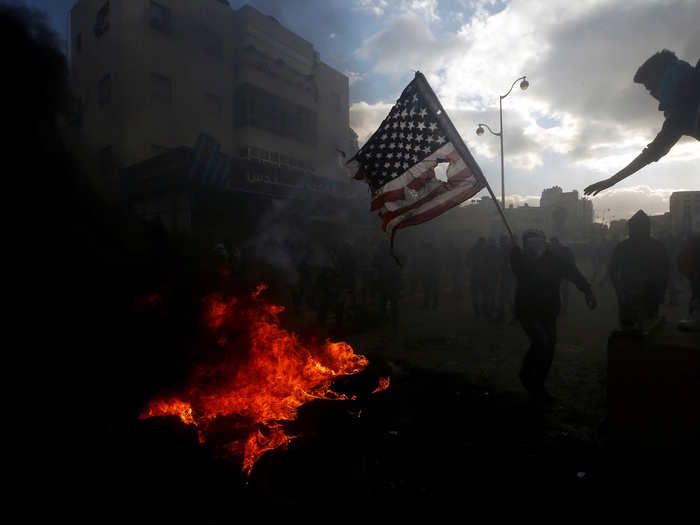
The Israeli military occupation of the West Bank territory places harsh restrictions on its residents, particularly on Palestinians in the area, who are governed by the authoritarian Palestinian Authority that provides only a limited set of rights for citizens and harsh suppression of political dissent.
Aggregate Freedom Score: 25/100
Western Sahara
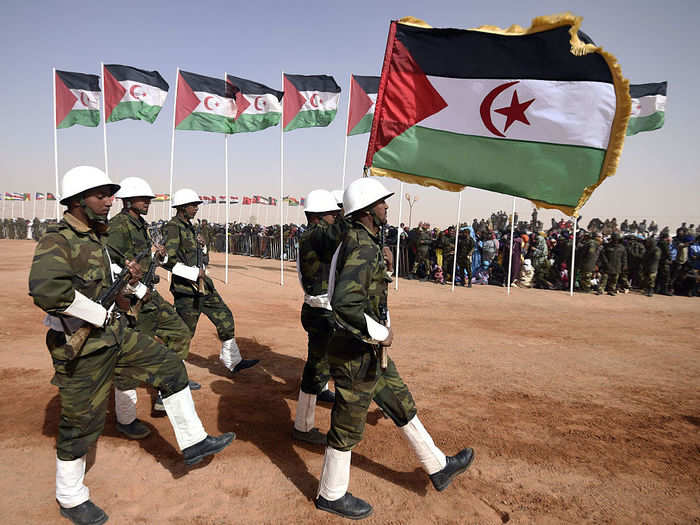
The Western Sahara, a non-self-governing territory has been the site of repeated clashes between the native Sahrawi population and neighboring Moroccan security forces since the country annexed the area in 1979.
Aggregate Freedom Score: 4/100
Yemen

Yemen has been devastated by a civil war that began in 2015, and repeated clashes between foreign powers led by Saudi Arabia and the Houthi rebel movement. Violence has interrupted trade and federal resources, causing hunger and disease that affected approximately 20 million people as of December 2018.
Peace talks, elections, and other normal political activity have failed to proceed.
Aggregate Freedom Score: 11/100
Gaza Strip
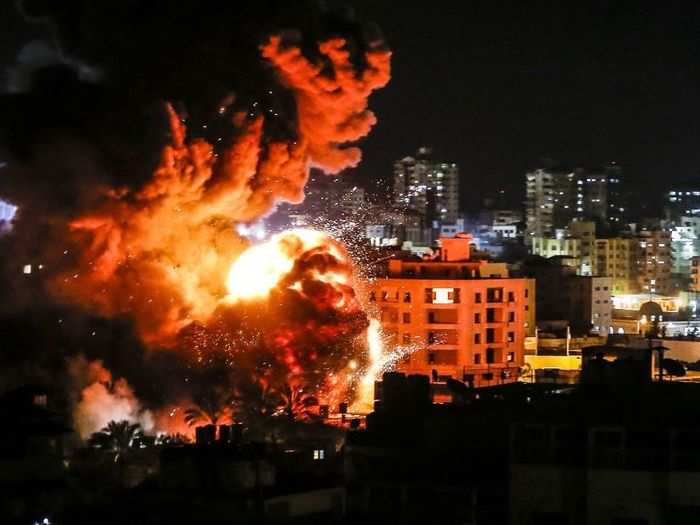
The Gaza Strip's functioning as a territory is torn between the presence of Israeli and Egyptian forces, and Islamist political and militant group Hamas, which has controlled the area since 2007. Conflict between the group and the Palestinian Authority in the West Bank has frozen democracy, stopping elections since the last one was held in 2006.
Aggregate Freedom Score: 11/100
Popular Right Now
Popular Keywords
Advertisement